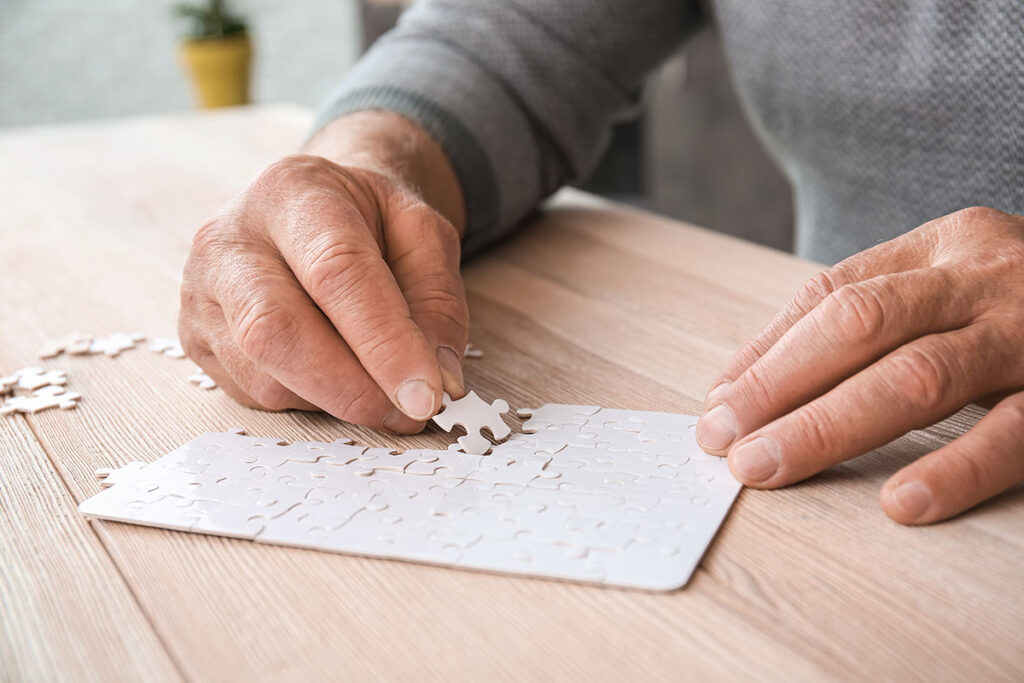Is memory loss hereditary or genetic? This question is common among those whose relatives have had Alzheimer’s or dementia-related issues. As you grow older, some degree of memory loss and decline in cognitive function is considered normal. However, memory problems that disrupt one’s ability to perform daily tasks are a serious concern. While specific genetics affect memory loss, symptoms can be treated and managed by investing in a long-term care plan.
Moderate to severe memory loss and cognitive decline can impair an individual’s normal functioning and place a significant burden on caregivers. Thus, shifting to a senior living home with specialized Memory Care services can considerably increase the member’s well-being and life expectancy.
If your loved one is showing symptoms of memory loss, reach out to learn more about Ventana’s senior memory care services in Dallas, TX. Call 214.225.6197 to learn about memory loss and genetics and how we can help you or someone you love thrive during retirement.
Is Memory Loss Genetic?
Is memory loss hereditary? Is short-term memory loss genetic? Before delving into answers to these questions, it is essential to understand the differences between dementia and age-related memory loss. Some degree of memory loss is considered a normal part of aging, and specific causes can be easily treated.
What Is Memory Loss?
Memory loss can include occasional forgetfulness or the loss of short- or long-term memory that worsens over time. Memory loss can have several underlying causes, such as:
- Medication
- Substance abuse
- Sleep deprivation
- Smoking
- Stress
- Depression
- Strokes
- Traumatic injury
- Nutritional deficiencies
- Dementia
Many cases of memory loss are temporary and can easily be treated. However, for dementia or other progressive memory disorders, long-term planning is required to decrease or manage symptoms.
The Link Between Memory Loss and Genetics
Studies show that genetics do affect memory loss. For instance, a gene called apolipoprotein E is associated with Alzheimer’s. Thus, individuals who inherit one or more copies of the gene are at greater risk.
However, this doesn’t mean you should undergo genetic testing immediately. Genetics only suggest the likelihood of developing a particular disease; they aren’t a definite prediction. It is possible to have that gene and not develop Alzheimer’s.
Studies have shown that by modifying one’s lifestyle, getting enough exercise, and following a diet, you can stave off age-related dementia even if you carry specific genes.
Does Memory Loss Run in the Family?
Memory disorders such as Alzheimer’s or Parkinson’s affect not just the individual but the entire family. As the condition gets progressively worse, the burden of care on the family members keeps increasing.
While having a relative with these conditions might increase the risk of developing them, it does not conclusively prove whether or not you will develop the disease. Similarly, the likelihood of developing Alzheimer’s increases with age but does not guarantee its manifestation.
Thus, if you’re worried that memory loss runs in the family, you can invest in healthy lifestyle changes to decrease your risk. By keeping your brain and body active, socializing with loved ones, and minimizing alcohol consumption and smoking, you can reduce the risk of developing severe memory-related disorders.
Call Today to Find Personalized Memory Care Services at Ventana
At Ventana, we offer various personalized senior living services in Dallas, TX. Members of our retirement community can opt for Independent Living, Assisted Living, or specialized Memory Care services depending on their unique needs. With a host of amenities, around-the-clock skilled nursing care, and activities to promote well-being and connection, we take every step to improve the quality of life for the seniors in our community.
Call us at 214.225.6197 or complete our online form to give your loved ones the highest care, comfort, and security quality.

